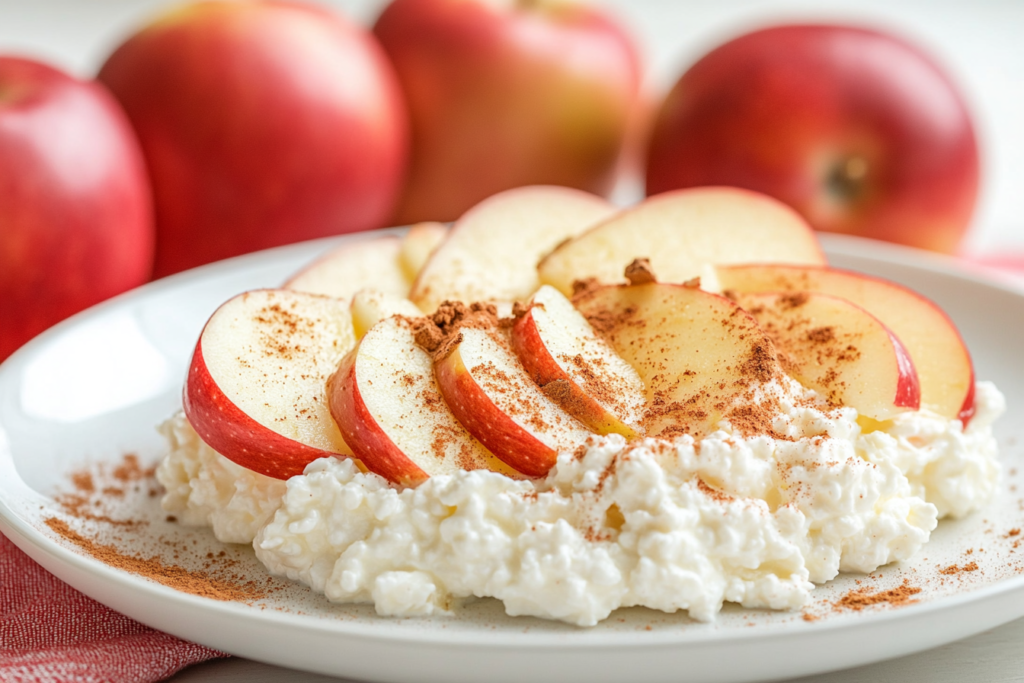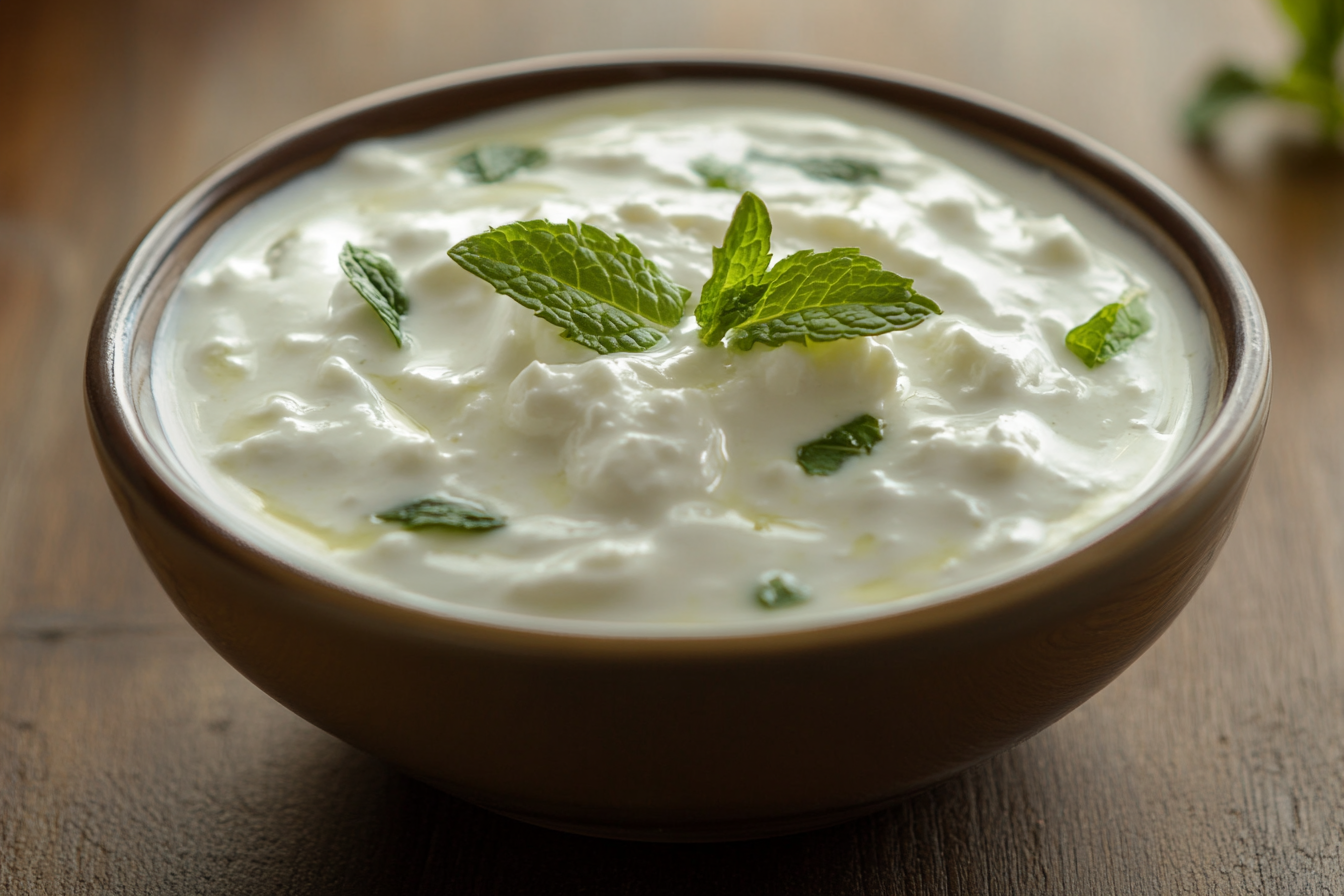Is Cottage Cheese Healthy? A Complete Guide
Cottage cheese is becoming increasingly popular as a versatile, nutrient-rich food, but what is it, and why is it considered so healthy? Made from curdled milk, this creamy, lumpy cheese is a top choice for fitness enthusiasts, people looking to lose weight, and anyone focused on eating healthy.
Recently, cottage cheese has been labeled a superfood because of its impressive nutritional content and its ability to fit into various diets. With its high-quality protein, vitamins, and important minerals, it supports muscle recovery, weight control, and overall health. Whether enjoyed as a snack, mixed into recipes, or added to a balanced meal, cottage cheese remains a favorite among health-conscious eaters.
This article will explore what makes cottage cheese so healthy by looking at its nutritional value, the benefits it offers, and how it stacks up against other cheeses. Additionally, you’ll discover easy ways to include it in your daily diet, learn about its potential downsides, and get answers to common questions.
By the end, you’ll understand how cottage cheese can help you reach your health goals, whether that’s losing weight, building muscle, or simply eating better.
Nutritional Profile of Cottage Cheese
What is Cottage Cheese Made Of?
Cottage cheese is a fresh, unaged cheese made by curdling cow’s milk with an acidic substance, such as vinegar or lemon juice. As a result, the milk solids separate from the whey, forming soft, white curds. Once the curds develop, they are drained but not pressed, which keeps the texture moist and crumbly.
The basic ingredients in cottage cheese are remarkably simple, making it a clean and wholesome food choice. These include:
- Pasteurized cow’s milk: Available as whole, low-fat, or skimmed milk, depending on your preference.
- Acid or rennet: This is used to curdle the milk and form the curds.
- Salt: Added to enhance the flavor.
In some cases, variations may include cream for added richness, herbs for flavor, or even probiotics to improve gut health. Because of its minimal processing and simple ingredients, cottage cheese remains a natural food that fits into a wide range of dietary preferences.
Nutritional Value of Cottage Cheese
Cottage cheese is highly celebrated for its rich useful profile. It is not only low in calories but also packed with protein and other important vitamins and minerals. Here is a breakdown of its macronutrient content per 100 grams:
| Nutrient | Amount |
|---|---|
| Calories | 98 kcal |
| Protein | 11 g |
| Carbohydrates | 3.4 g |
| Fat | 4.3 g |
| Sodium | 364 mg |
As you can see, this nutrient-dense composition makes cottage cheese a low-calorie yet high-protein food, making it particularly useful for weight management and muscle maintenance. Additionally, its moderate fat content provides energy without tipping the calorie scale too far.
Comparison with Other Cheeses
When compared to heavier cheeses like cream cheese and ricotta, cottage cheese stands out for its lower calorie and reduced fat content.
- Cream Cheese: Contains 342 calories and 34 grams of fat per 100 grams.
- Ricotta Cheese: Offers 174 calories and 13 grams of fat per 100 grams.
In contrast, cottage cheese provides all the creamy texture you love but with significantly fewer calories and fat. This makes it a lighter, healthier choice for individuals seeking to maintain or lose weight. Furthermore, it delivers more protein per serving, which is ideal for active individuals and fitness enthusiasts.
Vitamins and Minerals in Cottage Cheese
Beyond its proteins, fats, and carbs, cottage cheese is also an excellent source of essential vitamins and minerals that are vital for overall health. Some of the key micronutrients include:
- Calcium: Promotes strong bones and teeth.
- Phosphorus: Works alongside calcium to maintain healthy bone structure.
- Vitamin B12: Supports red blood cell production and neurological function.
- Riboflavin (B2): Plays a role in energy metabolism and improves skin health.
- Selenium: Acts as a powerful antioxidant, protecting cells from damage.
Together, these essentials work to support bone health, energy production, and cellular repair. Consequently, cottage cheese is not just a source of protein but also a valuable contributor to overall well-being.
How Much Protein is in Cottage Cheese?
One of the standout features of cottage cheese is its high protein content. With approximately 11–12 grams of protein per 100 grams, it serves as an excellent source of slow-digesting casein protein. Unlike whey protein, which digests quickly, casein releases amino acids into the body gradually. This makes it a great addition to high-protein meals, especially when combined with eggs—learn more about cottage cheese and egg benefits and recipes. Additionally, if you’re looking for creative ways to enjoy cottage cheese, check out these mix-in ideas.
Because of this, cottage cheese is ideal for various health goals, including:
- Muscle Recovery: Athletes and bodybuilders benefit from its slow-release protein, which helps repair and build muscles.
- Weight Loss: Protein increases feelings of fullness, reducing the urge to snack and lowering overall calorie intake.
- Nighttime Nutrition: Consuming cottage cheese before bed supports overnight muscle recovery and repair, thanks to the gradual release of amino acids.
In comparison to Greek yogurt, another high-protein dairy product, cottage cheese holds its ground with a similar protein content but contains fewer carbohydrates. This makes it a top-tier option for individuals who want to optimize protein intake while keeping calorie and carb counts under control.
By offering key vitamins, protein, and healthy fats in one food, cottage cheese is one of the most adaptable and healthy dairy options. Whether your goal is to build muscle, lose weight, or maintain good health, it easily fits into your diet.
Health Benefits of Cottage Cheese
Is Cottage Cheese Good for Weight Loss?
Cottage cheese has gained recognition as a weight-loss-friendly food due to its unique useful makeup. One of the key reasons is its high protein content and low calorie density, which together promote satiety and reduce overall calorie intake.
Protein plays a significant role in curbing hunger by increasing the release of appetite-suppressing hormones like peptide YY and reducing levels of ghrelin, the hunger hormone. With about 11–12 grams of protein per 100 grams, cottage cheese keeps you fuller for longer, preventing unnecessary snacking between meals.
Moreover, cottage cheese’s low carbohydrate content makes it ideal for individuals on low-carb or ketogenic diets. For those looking to cut calories without compromising nutrition, opting for low-fat cottage cheese ensures you get important vitamins and minerals while keeping the fat content low.
Incorporating cottage cheese into a balanced diet helps manage calorie consumption while delivering sufficient protein to support weight loss. Adding it to smoothies, salads, or snacks can make weight management both easy and delicious.

Is Cottage Cheese Good for Muscle Building?
Cottage cheese is a muscle-building powerhouse primarily because of its casein protein content. Casein is a slow-digesting protein that provides the body with a steady supply of amino acids over several hours. This sustained protein release is particularly useful for muscle recovery and growth, especially when eaten before bedtime.
Athletes and bodybuilders often rely on cottage cheese to meet their protein needs for post-workout recovery. Its amino acid profile includes leucine, a branched-chain amino acid (BCAA) known to stimulate muscle protein synthesis. Compared to fast-digesting whey protein, casein is more effective in preventing muscle breakdown over prolonged periods, such as during sleep or fasting.
Additionally, cottage cheese is a nutrient-dense food that pairs well with strength-training regimens. It provides a low-fat, protein-rich option without excessive calories, making it suitable for both bulking and cutting phases.
For optimal muscle gains, pairing cottage cheese with complex carbohydrates or fruits can create a balanced post-workout snack, enhancing energy replenishment and recovery.
Cottage Cheese and Bone Health
Strong bones require a steady supply of calcium and phosphorus, and cottage cheese excels in providing both. Calcium is a key mineral for bone density and strength, while phosphorus works in tandem with calcium to maintain the skeletal structure.
A single serving of cottage cheese can provide up to 15–20% of your daily calcium needs, contributing significantly to bone health. This is particularly important for:
- Older adults: To reduce the risk of osteoporosis.
- Growing children: For healthy bone development.
- Athletes: Who may experience greater bone stress from physical activity.
Including cottage cheese in a balanced diet ensures your bones remain strong and resilient, reducing the likelihood of fractures or bone loss over time.

Cottage Cheese and Gut Health
Certain types of cottage cheese contain probiotics, the Advantageous bacteria that support a healthy gut microbiome. Probiotics are essential for improving digestion, nutrient absorption, and overall gut health.
While not all cottage cheeses contain live cultures, some varieties (often labeled as “probiotic” or “live cultures”) undergo fermentation processes that preserve these gut-friendly bacteria. Regular consumption of probiotic-rich cottage cheese can:
- Improve digestive health.
- Enhance immune system function.
- Reduce symptoms of bloating and constipation.
When purchasing cottage cheese, look for labels that specify the inclusion of probiotics, ensuring you reap the gut health benefits.
Cottage Cheese for Metabolism and Energy
Cottage cheese is a reliable source of slow-digesting proteins, which help stabilize blood sugar levels and sustain energy throughout the day. This makes it an excellent choice for individuals needing prolonged energy, such as athletes or those following demanding work schedules.
When picking cottage cheese, consider the low-fat vs. full-fat varieties:
- Low-Fat Cottage Cheese: Ideal for those focusing on weight loss or calorie control. It provides protein without excess fat.
- Full-Fat Cottage Cheese: Useful for individuals requiring additional energy and healthy fats, particularly for active lifestyles.
Both options provide ample nutrients to fuel the body, but the choice depends on individual dietary needs and health goals.
Is Cottage Cheese Healthy Compared to Other Cheeses?
Cottage Cheese vs. Greek Yogurt
Cottage cheese and Greek yogurt are often compared due to their similar creamy textures, high protein content, and popularity among health-conscious individuals. However, there are some nutritional differences that may make one preferable over the other depending on your goals.
| Nutrient | Cottage Cheese (100g) | Greek Yogurt (100g) |
|---|---|---|
| Calories | 98 kcal | 59–70 kcal |
| Protein | 11 g | 10 g |
| Carbs | 3.4 g | 3–4 g |
| Fat | 4.3 g | 0.4–4 g (low-fat/full) |
- Protein: Both are excellent sources of protein, but cottage cheese has a slight edge with its higher casein content, which digests slowly.
- Calories: Greek yogurt generally has fewer calories, especially the non-fat variety.
- Probiotics: Greek yogurt naturally contains live probiotics that promote gut health, while only certain types of cottage cheese offer these benefits.
Ultimately, both are healthy, and picking between them depends on individual dietary preferences and needs.
Cottage Cheese vs. Ricotta Cheese
Ricotta and cottage cheese are both fresh cheeses but differ significantly in texture, fat content, and Advantageous values.
| Nutrient | Cottage Cheese (100g) | Ricotta Cheese (100g) |
|---|---|---|
| Calories | 98 kcal | 174 kcal |
| Protein | 11 g | 7–8 g |
| Fat | 4.3 g | 13 g |
- Protein: Cottage cheese contains more protein, making it better for weight loss and muscle building.
- Fat Content: Ricotta cheese has a much higher fat content, which increases its calorie count.
- Taste and Texture: Ricotta is creamier and slightly sweeter, while cottage cheese has a lumpier texture.
For those watching their calories, cottage cheese is the better choice. On the other hand, ricotta is a good option for anyone seeking a creamier, richer flavor.
Cottage Cheese vs. Cream Cheese
When comparing cottage cheese to cream cheese, the differences in fat, calories, and overall nutrition are stark.
| Nutrient | Cottage Cheese (100g) | Cream Cheese (100g) |
|---|---|---|
| Calories | 98 kcal | 342 kcal |
| Fat | 4.3 g | 34 g |
| Protein | 11 g | 5 g |
- Calories and Fat: Cream cheese contains significantly more calories and fat, making it less ideal for weight loss.
- Protein: Cottage cheese offers double the protein compared to cream cheese.
- Usage: Cottage cheese can substitute cream cheese in recipes like dips or spreads for a healthier option.
Cottage cheese is undeniably the healthier choice for those focused on reducing calorie and fat intake while maintaining protein levels.
FAQs About Cottage Cheese
Is it a healthy choice for breakfast?
Absolutely. Cottage cheese is an ideal breakfast option thanks to its high protein content and low calorie density. Starting your day with a protein-packed meal not only curbs mid-morning hunger but also helps stabilize blood sugar levels. Combine it with fresh fruits, oats, or nuts for a balanced and satisfying start to the day.
Can it help reduce belly fat?
Yes, cottage cheese supports weight loss, including reducing belly fat, when eaten as part of a calorie-controlled diet. Its high protein content promotes satiety, reducing overall food intake. Additionally, protein preserves muscle mass during weight loss, which helps maintain a higher metabolism. Picking low-fat options further enhances its role in reducing stubborn fat.
Is it safe to eat every day?
Eating cottage cheese daily can be perfectly healthy as it provides essential nutrients like calcium, phosphorus, and B vitamins. However, individuals should watch out for its sodium content, particularly in processed varieties. Also, if you’re wondering how to check if your cottage cheese has gone bad, read this detailed guide on signs of spoilage.
Is it suitable for diabetics?

Yes, cottage cheese is an excellent food for diabetics due to its low carbohydrate content and minimal impact on blood sugar. Its protein content helps slow down glucose absorption, keeping blood sugar levels stable. Pair it with fiber-rich foods, like vegetables or whole grains, for an even better Blood sugar response.
Can it be part of a keto diet?
Definitely. Cottage cheese is naturally low in carbs and high in protein, making it suitable for ketogenic diets. Full-fat versions are particularly useful for keto followers, as they provide essential fats for energy while keeping carb intake low.
How does it assist with weight gain?
For individuals aiming to gain weight, cottage cheese provides a nutrient-dense solution. Its casein protein supports muscle growth and repair, especially when eaten before bed. To increase calories, pair cottage cheese with energy-dense foods like nut butters, seeds, or whole-grain toast. It’s a favorite among athletes and bodybuilders for lean weight gain.
Conclusion
Cottage cheese stands out as a healthy food that offers both benefits and flexibility. With its high protein content and important nutrients like calcium, phosphorus, and B vitamins, it brings many advantages to your diet. Whether your goal is to lose weight, build muscle, or stay healthy, cottage cheese is a reliable choice.
Its flexibility in meals makes it even more appealing. For example, you can enjoy it as a quick breakfast with fruits or oats. You can also have it as a snack with nuts and seeds, or use it as an ingredient in savory and sweet dishes. Because it is so adaptable, it works well with many eating plans, including low-carb, keto, and diabetic-friendly diets.
However, it’s important to pick the right kind of cottage cheese. Choosing low-sodium, low-fat, or probiotic-rich options lets you avoid unnecessary additives while getting the most benefits. Pairing cottage cheese with foods like fruits, vegetables, or grains also ensures your meals are balanced and enjoyable.
In summary, cottage cheese is a simple, affordable, and very healthy food that can become a regular part of any diet. By eating it often, you can enjoy benefits like weight control, stronger bones, better muscle recovery, and overall health. Healthy eating doesn’t need to be hard or costly—cottage cheese shows how one food can do so much with little effort. Why not add this creamy and nutritious choice to your routine? It’s worth it!

